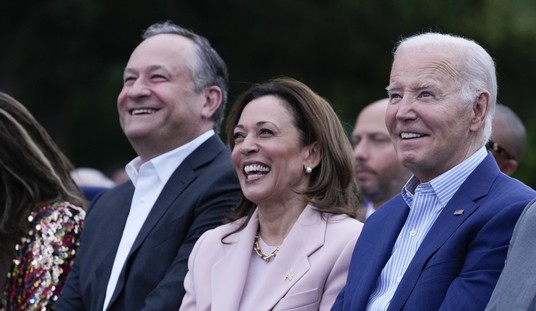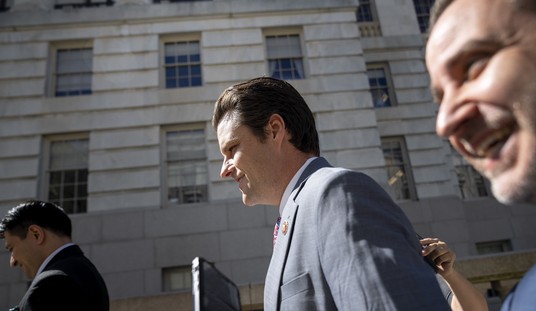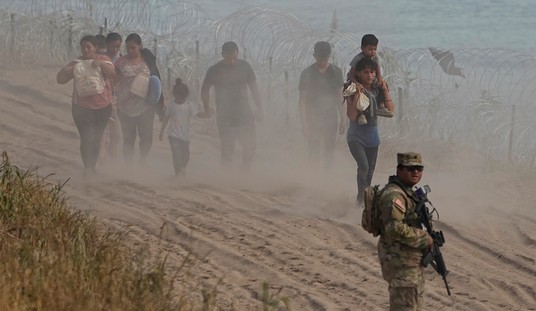
There is no denying that parts of the Caribbean, particularly the US Virgin Islands and Puerto Rico, were devastated by Hurricane Maria. If history provides any guide, both of those areas will suffer massive and permanent population loss and it will take decades for their economies to rebound to where they were a couple of months ago.
Over the past few days, the devastation has been transformed from adequate and well-thought out to a wasteful stampede. This is the story.
Everyone knows Donald Trump and his entire administration and the GOP are racists to the bone. Everyone knows that Puerto Rico was given short-shrift because those racist f***s in Florida and Alabama and Mississippi and Louisiana and Texas wouldn’t drive to Puerto Rico to help out, just like they did in Houston, which we all know is all white, when Harvey hit. Connect the dots. Do the math. This isn’t hard to figure out. Racism is the only answer.
As Teri Christoph and I posted (here | here), the problem in Puerto Rico does not really resemble Houston in any way, shape, or form. Maria was a much stronger storm than Harvey. The infrastructure in Texas seems to have been more modern than that in Puerto Rico. Puerto Rico is a freakin’ island (I know this will shock a lot of folks, but the outpouring of volunteer help that happened organically after Harvey is impossible to recreate on an island). Maria devastated Puerto Rico’s power grid at the transmission and distribution levels and it also destroyed most of the roads serving the interior of the island. Puerto Rico, an island, depends upon its ports for major cargo deliveries. Those ports were closed because of the debris and structural damage generated by Hurricane Maria. Airports are reliant upon electricity. Without a power grid and without a transportation network to move fuel from ports to airport generators, the number of flights is very limited.
Into this menagerie of destruction was inserted the Jones Act.
The act, regarded as one of the cornerstones of U.S. maritime policy, requires that goods shipped between U.S. ports be carried by vessels built in the U.S., majority-owned by American firms and crewed by U.S. citizens. The Department of Homeland Security hasn’t waived the act for Puerto Rico, which was devastated by Hurricane Maria last week.
The Category 4 storm destroyed the island’s electrical grid and left it desperately short of food, clean water and fuel.
U.S.-based carriers and the Department of Homeland Security maintain the problem hindering the relief effort isn’t a lack of ships, but devastation to the island’s transportation network and a shortage of diesel fuel.
“Our current assessment is that a waiver isn’t needed,” DHS spokesman David Lapan said. “We don’t believe the Jones Act is preventing us from moving goods to Puerto Rico by sea.”
I’m not going to defend the Jones Act, it is the kind of corporate welfare that grates on any conservative. Having said that, there should be a policy discussion about whether we want a US Merchant Marine, because without the Jones Act such an entity is not financially viable, and the law should be followed. Puerto Rico does not need foreign shipping. It needs roads and trucks. There is no need for a waiver. But today the Trump administration waived the evil Jones Act. Again, this is a mere gesture. More ships are not needed in Puerto Rico as the port facilities are gorged and there is only one working harbor. But the choice the administration faced was to issue a meaningless waiver too late to gain any PR benefit or to continue to be accused of not caring.
A senior DHS official said Wednesday the Jones Act doesn’t permit the department to grant waivers simply to push down costs. Only the Department of Defense may obtain a Jones Act waiver automatically, which it did to move petroleum products from Texas after Hurricane Harvey. If a request comes from another agency or person, such as a member of Congress, DHS conducts an analysis to determine whether U.S.-flagged ships can accommodate the needs before granting it, Mr. Lapan said.
Keep that in mind, the Jones Act was waived for Houston in order to move products OUT of Texas, not to bring relief supplies in.
And the fact is that Puerto Rico’s problem is not a lack of relief supplies, it is a lack of transportation infrastructure to move the relief supplies that are there.
Maddening.
3,000 shipping containers packed with food water & medicene have been sitting at the port in Puerto Rico since Saturday pic.twitter.com/LJ0ETpmnOf— David Begnaud (@DavidBegnaud) September 27, 2017
Over 260,000 barrels of fuel (one barrel=42 gallons) have been in Puerto Rico since Tuesday–and more is arriving daily–but it can’t move from the single operational port in San Juan to gas stations or critical facilities like hospitals and airports because there is no transport and not road net.
The U.S. government has now shipped 4 million meals and 1.59 million gallons of water. Domestic firms have moved 9,500 containers to Puerto Rico, according to the American Maritime Partnership. One ship with more than 35 million pounds, or the equivalent of 1,900 planes, arrived Sunday.
Trucks are ready to be loaded with the goods and precious diesel for backup generators, but workers aren’t around to drive. Instead, they’re caring for families and cleaning up flood damage — and contending with the curfew.
The buildings that would receive supplies are destroyed and without electricity, Miller said. The transport companies that have staff available and diesel on hand encounter downed poles and power lines while navigating 80,000-pound tractor-trailers on delicate washed-out roads.
The measured response undertaken by the administration is turning into a panicked rout, not driven by the actual emergency but by the media coverage.
For instance, patients at Puerto Rico’s hospitals have largely been removed via aerial medevac. But two days ago, the aged, vicious hag Hillary Clinton surfaced from her Self Pity TourTM to demand the administration dispatch the USNS Comfort, one of the Navy’s hospital ships, to Puerto Rico. This is nothing but a senseless, wasteful and expensive gesture as Puerto Rico did not suffer mass casualties and if it had they would have been evacuated much earlier. But rather than fight the public relations battle and be called racists and uncaring, the administration capitulated and ordered the USNS Comfort to Puerto Rico. It will arrive this weekend. And it will sit empty.
More military assets are being sent to Puerto Rico but, like the supplies, most of them will hang out around the airports because there is no real need for them right now. There are a limited number of tasks military units can actually provide and repairing roads and electric grids are not two to the things done most efficiently by soldiers.
In my view, the best way to view the Puerto Rico story is to think of it as trying to make this Trump’s Katrina but with an extra special dose of racism thrown in (and let’s not forget, the racism charge was thrown at Bush because New Orleans was a majority-minority city). Why is this important?
On the issues, Trump’s response to recent hurricanes brings his most positive job ratings, by far. Sixty percent approve, while 31 percent disapprove.
The facts are quite different from what is being reported. But in public relations one of the first lessons you learn is that facts don’t really matter, the driving concern is what is called P=R, perception equals reality. The media is creating the perception that an uncaring and racist administration is leaving a Hispanic and Democrat island to its own devices. The only way to combat that is by an ostentatious use of federal resources. That the resources are of no use or benefit is simply not material any longer.













Join the conversation as a VIP Member